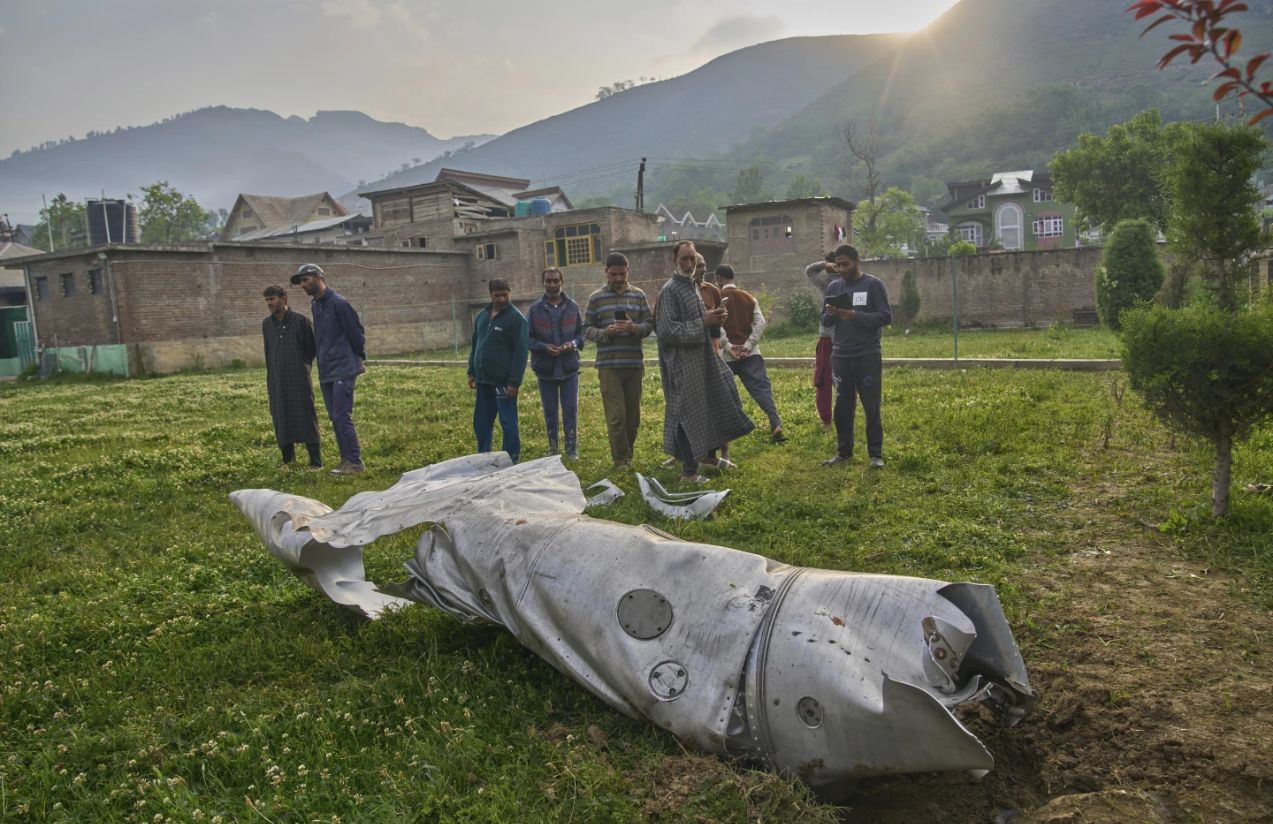India launched missile strikes into Pakistani territory early Wednesday, in retaliation for last month’s massacre of Indian tourists in Kashmir. The assault significantly escalated tensions between the two historic rivals. Pakistan denounced the operation as an “act of war” and claimed it had shot down several Indian aircraft.
According to India’s Ministry of Defense, the missiles targeted at least nine sites allegedly linked to terrorist threats against the country. The Pakistani military reported that the missiles struck six locations in Pakistan-administered Kashmir and in the eastern province of Punjab, killing at least 26 people—including women and children—and injuring 38 others.
Amid mutual recriminations, Pakistan warned it reserves the right to respond at a time and place of its choosing. Fears of an open conflict are mounting, in what already appears to be the most severe crisis between the nuclear-armed neighbors since their 2019 standoff.
Following the missile strikes, intense cross-border artillery fire broke out along the Line of Control—the de facto border dividing disputed Kashmir. Indian authorities reported the crash of three aircraft within their territory, though it remains unclear if they were brought down by Pakistani fire.
The latest flare-up stems from an April attack in Indian-controlled Kashmir, in which 26 people—mostly Hindu tourists—were killed. Witnesses said some men were executed in front of their wives. India blamed the attack on a group calling itself the Kashmir Resistance, which it links to the banned Pakistani militant outfit Lashkar-e-Taiba. Pakistan has denied any involvement.
The two countries have fought three wars—two of them over Kashmir, a Himalayan region divided between both nations but claimed in full by each. In the aftermath of the April massacre, both sides hardened their positions: diplomats were expelled, borders shut, flights suspended, and a key water-sharing treaty was frozen.
Pakistani Prime Minister Shehbaz Sharif condemned Wednesday’s strike, vowing a firm response to what he called an unprovoked assault. “Pakistan has every right to respond forcefully,” he said. The country’s National Security Committee backed his stance, accusing India of attacking under the “false pretense” of imaginary terrorist camps and causing civilian deaths.
Experts warned of a fast-moving escalation. South Asia analyst Michael Kugelman said the Indian missile strikes were “among the most intense in years,” adding that Pakistan’s response would “almost certainly be forceful.” He noted that “even with nuclear deterrents in place, both militaries are not afraid to engage in significant conventional force.”
In 2019, the two countries came close to war following a suicide bombing that killed 40 Indian soldiers. India launched airstrikes on Pakistani soil, prompting Pakistan to shoot down an Indian jet and briefly detain the pilot.
The international community reacted with alarm. UN Secretary-General António Guterres urged maximum restraint, warning that the world cannot afford a military confrontation between India and Pakistan. China, Pakistan’s largest investor and a country with its own border disputes with India, also called for calm.
The missile strikes left scenes of panic. In Muzaffarabad, the capital of Pakistan-administered Kashmir, witnesses reported explosions destroying homes and sending residents fleeing. “We feared the next missile would hit our house,” said a local resident.
One missile struck a mosque in Bahawalpur, killing 13 people. The site is near a seminary that once served as the headquarters of the militant group Jaish-e-Mohammed, banned since 2002. Another missile hit a mosque in Muridke, close to what was once Lashkar-e-Taiba’s main base before its 2013 ban.
India’s Ministry of Defense described the operation, named “Sindoor,” as “targeted, measured, and non-escalatory.” It emphasized that no Pakistani military installations were hit and said India had shown “considerable restraint.” The mission’s name—referring to the red powder Hindu married women wear—was a symbolic nod to the wives who saw their husbands killed in April’s attack.
Clashes continued throughout the day. Indian police and medical officials reported that 12 civilians were killed and at least 40 injured by Pakistani artillery in Poonch district, near the militarized frontier. Ten more were wounded in the Uri sector.
Shortly after the strikes, three aircraft crashed in Indian territory: two in Kashmir and one in the northern state of Punjab. Pakistan claimed it had downed five Indian jets, though India has not confirmed the losses.
In Wuyan, near Srinagar, aircraft debris was scattered across a school and mosque complex. “We saw a huge fireball in the sky, followed by explosions,” said a resident. In Bhardha Kalan, close to the Line of Control, villagers watched Indian soldiers evacuate the pilots. A third aircraft crashed in a farmland area of Punjab, according to a police officer speaking anonymously.
As both governments convene their national security bodies and international actors call for de-escalation, the threat of a broader conflict looms large.

